International Jazz Day: four Indian cities to host the World Jazz Festival tour this week
In this photo essay, we feature bands who have performed during four editions of Banyan Tree Events’ World Jazz Festival, along with founder insights on music.
Launched in 2014, PhotoSparks is a weekly feature from YourStory, with photographs that celebrate the spirit of creativity and innovation. In the earlier 765 posts, we featured an art festival, cartoon gallery. world music festival, telecom expo, millets fair, climate change expo, wildlife conference, startup festival, Diwali rangoli, and jazz festival.
Mumbai-based Banyan Tree Events has been promoting Indian and international performing arts for over 28 years, ranging from music to dance. They also helped curate the Sur-Vasudha G20 Orchestra, presented at the culmination of the Culture Working Group meeting in Varanasi in August 2023.

Zosja El Rhazi with Susanne Alt and group
“Banyan Tree’s annual World Jazz Festival began in 2020 with the purpose of contributing to and enhancing the jazz scene in India,” Mahesh Babu, Founder of Banyan Tree, tells YourStory.
“The intent was also to create a single common platform where traditional styles of jazz from different musical cultures and parts of the world could be presented,” he adds. Held at Bangalore International Centre last year, the venue this time on Friday April 19 is Chowdiah Memorial Hall.
International Jazz Day is an important day of musical celebration across the world. “Our festival is an effort to engage with this movement, upholding the influence and beauty of jazz music for avid connoisseurs and music lovers in India,” Babu explains.
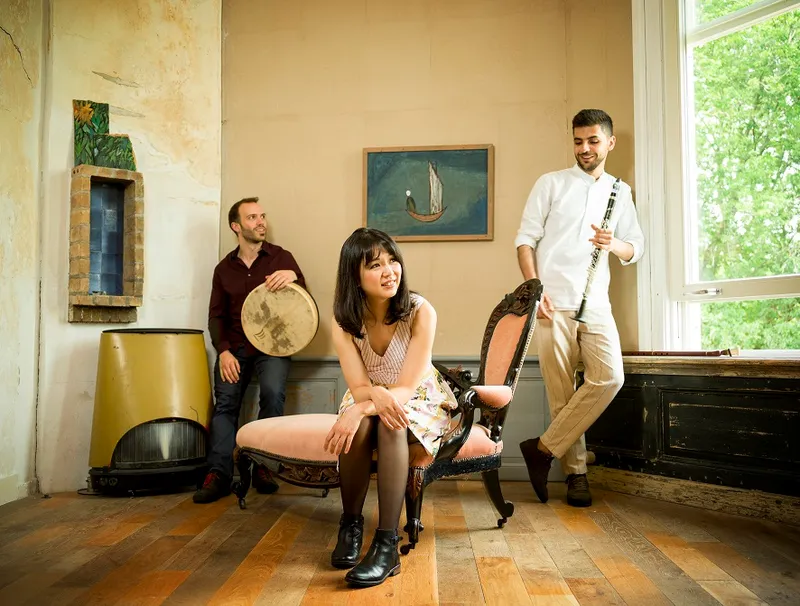
Chi Quartet - 1
April 30 has been designated by UNESCO as International Jazz Day to highlight the creativity of jazz and its contribution to uniting people around the world. See our earlier compilation of 130 Inspiring Quotes on International Jazz Day, and coverage of jazz festivals such as Java Jazz Festival (Jakarta), Montreal International Jazz Festival, and Borneo Jazz Festival (Malaysia).
“We are also invested in reaching jazz to smaller towns in India, and are on the lookout for better infrastructure and facilities to present this programme in places such as Dehradun,” Babu adds.
For programme selection, his team has a network of friends and connectors across the globe, who are closely engaged with musicians and artistes representing a diverse range of cultures. “Key among these are the promoters of our knowledge partners, the Amersfoort Jazz Festival held in The Netherlands,” he explains.

Saskia Laroo & band (Netherlands)
Over the years, Banyan Tree’s portfolio of festivals has grown to include Ruhaniyat (International Sufi and Mystic Music), Barkha Ritu (musical celebration with the maestros), Teen Prahar (a unique musical experience based on trilogies), Khusrau-Kabir, Mumbai Margazhi Mahotsavam (Carnatic music), and Humarhi (an evening of ghazals).
Although there is a ready audience for jazz in India, this form of music generally has a niche following, Babu observes. “By presenting this music in such a grand national festival, it becomes more accessible for audiences,” he says.
This increases the popularity of jazz, including among millennials and younger new listeners. “We also conduct a special programme called Jazz For Kids, where we bring the beauty of jazz to school students in urban locations in India,” Babu adds.
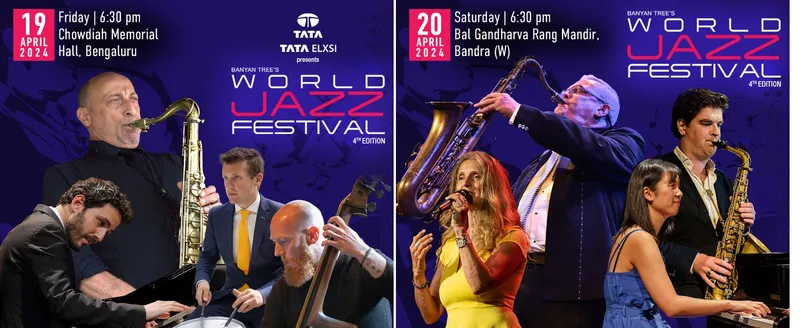
Shaped originally in the US, jazz is a fertile medium which lends itself to fusion with different cultural traditions around the world. “Fusion such as Indo-jazz is a healthy combination of two forms of music which are built on spontaneity and improvisation,” Babu observes.
These similarities make for a beautiful blend where both genres are significantly nurtured and enhanced. “These experiments are extremely vital to the development of the arts, bridging the gaps between varied nations and creating a sense of global unity,” he affirms.
As examples, he points to some of Banyan Tree’s unique projects such as Brahmaputra Raga Jazz. “It locally connects music from North-East India to jazz and other classical forms of music. We are invested in the development of this genre within India,” he enthuses.

Koh Mr. Saxman - Sound of Siam from Thailand
This week, the World Jazz Festival tour will be coming to Mumbai, Bengaluru, Pune, and Delhi. “We then get into preparations for Barkha Ritu, an annual Indian classical music festival dedicated to the monsoon ragas,” Babu describes.
Over the years, the jazz festival series has showcased artistes from the US, Netherlands, Brazil, South Korea, and Thailand. They include Alexander Beets, Saskia Laroo, Warren Byrd, Lucas Santana, Ben van den Dungen, Koh Mr. Saxman, Sven Rozier, Deborah Carter, and Rolf Delfos.
The lineup of Indian artists has featured vocalists and instrumentalists, such as Ravi Chary, Shakir Khan, Prasanna, Anubrata Chatterjee, and Shruti Vishwakarma.

Sven Rozier Quintet ft. Lizzy Ossevoort & Baer Traa
The series this year pays tribute to jazz greats such as South African pianist and composer Abdullah Ibrahim, American pianist Horace Silver, and the legendary saxophonist John Coltrane.
The Bengaluru lineup includes Tom Van der Zaal Quintet (with Fluerine and Femke Mooren), Chi Quartet, Ben van den Dungen Quartet, Thapelo Khumisi Trio (with Titi Luzipo), and New York Round Midnight Orchestra (with Alexander Hurricane Beets).
“Do come in large numbers and join us in this avid celebration of jazz,” Babu signs off, as a message to the audience.
Now what have you done today to pause in your busy schedule and harness your creative side for a better world?
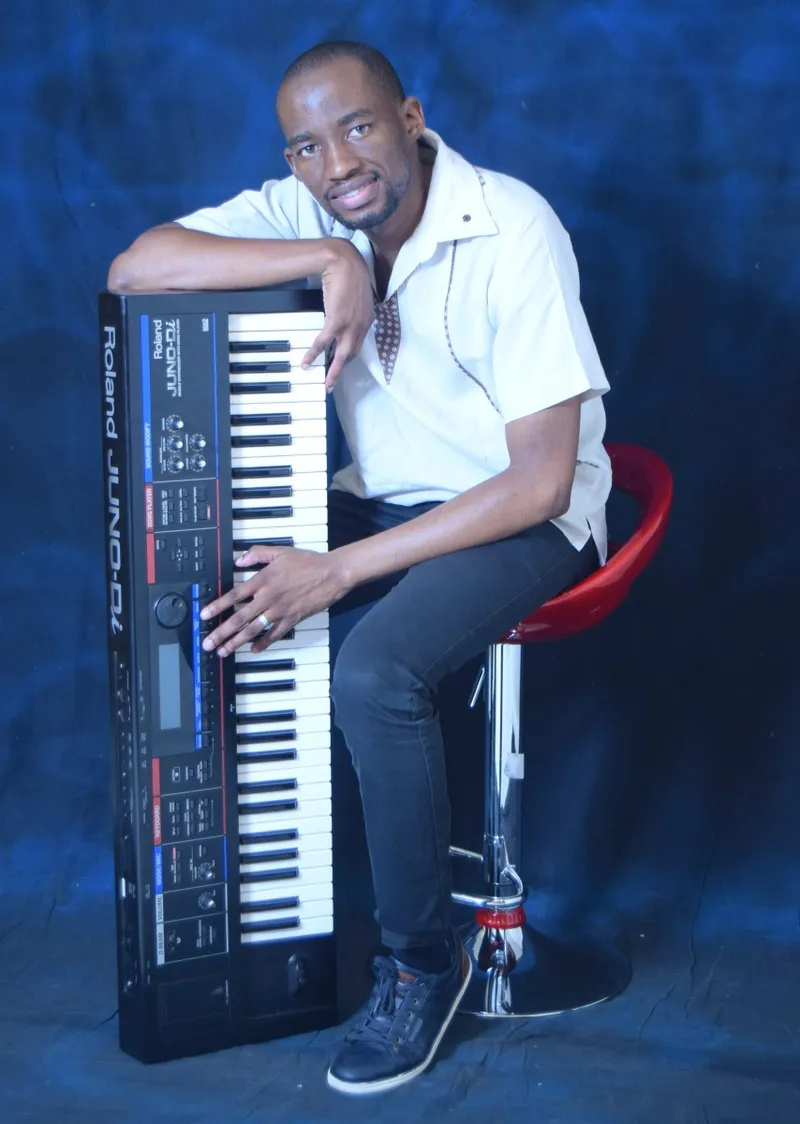
Thapelo Khumisi

Alexander Beets Quintet ft Paul van Kessel & Nathalie Schaap
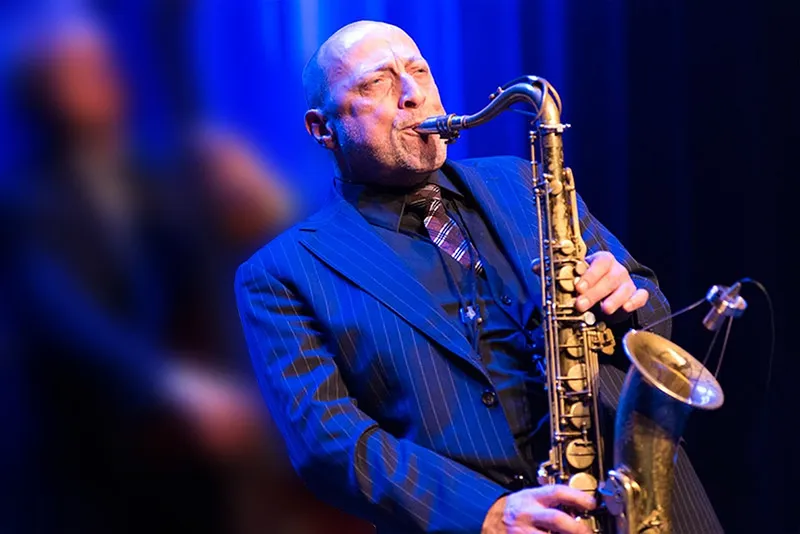
Ben Van den Dungen
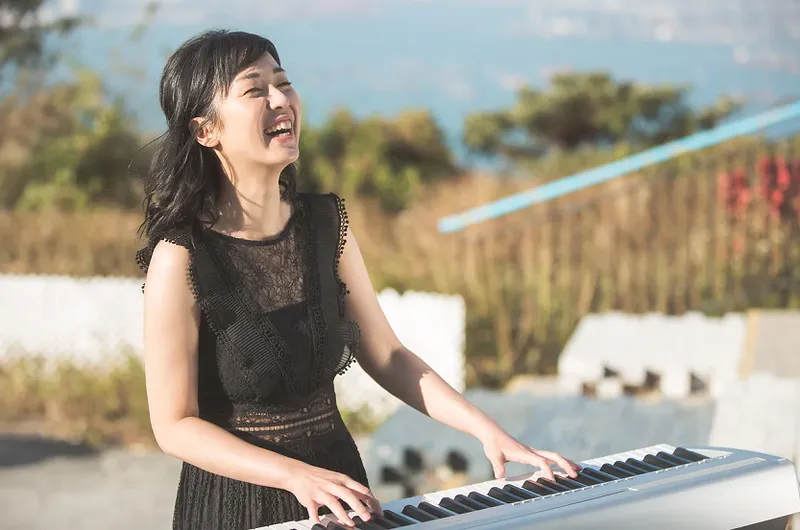
Chi Quartet

Koh Mr. Saxman - Sound of Siam ft. Pui Duangpon

Lucas Santana Quintet
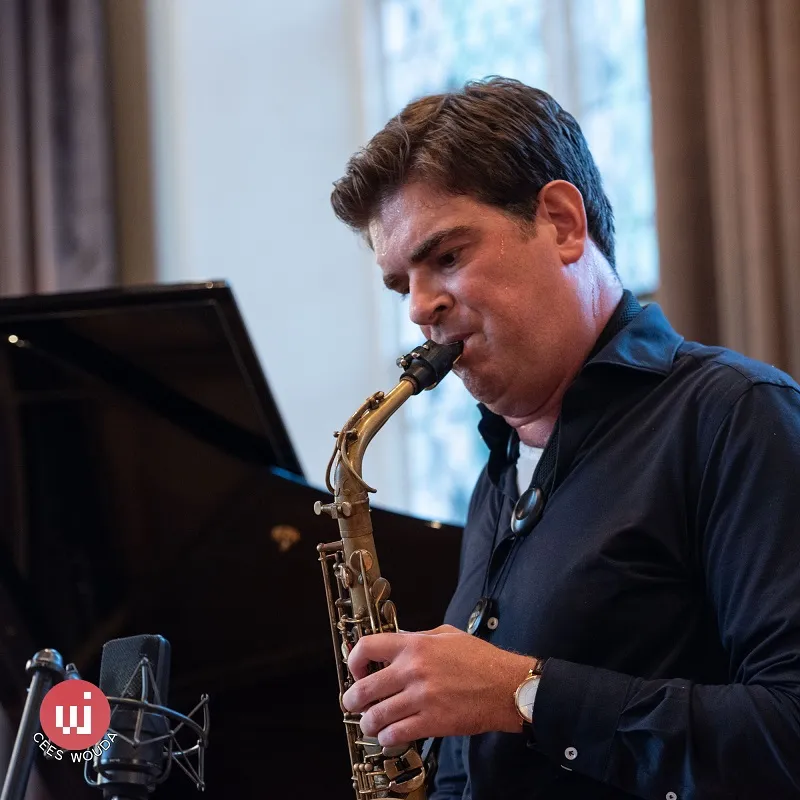
Tom Van Der Zaal
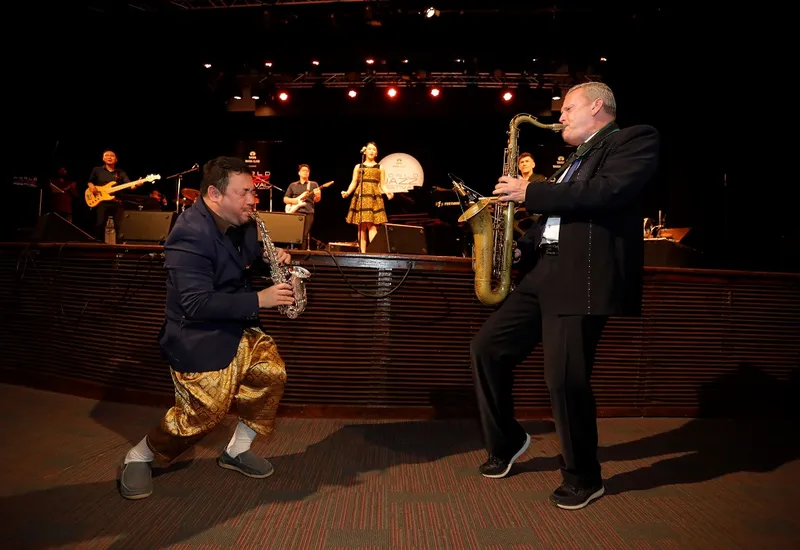
Koh Mr. Saxman with Alexandar Beets

Sven Rozier Quintet ft. Lizzy Ossevoort & Baer Traa

Susanne Alt - DJ & Saxophone
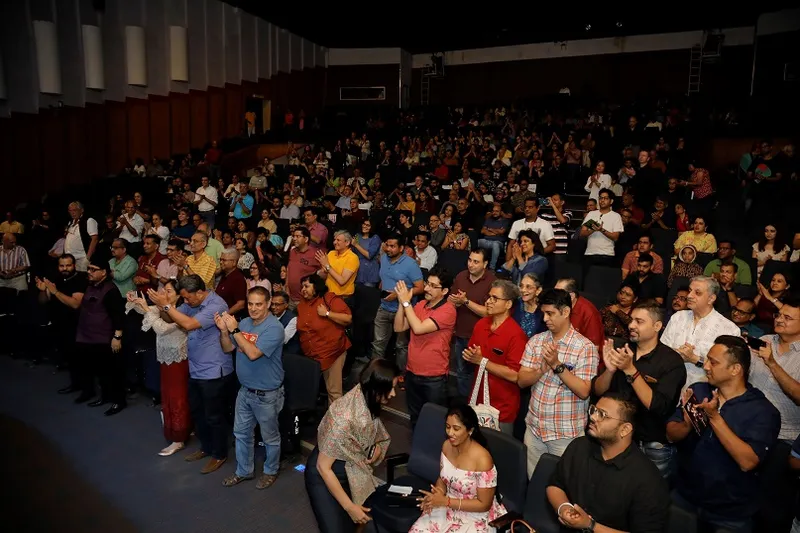
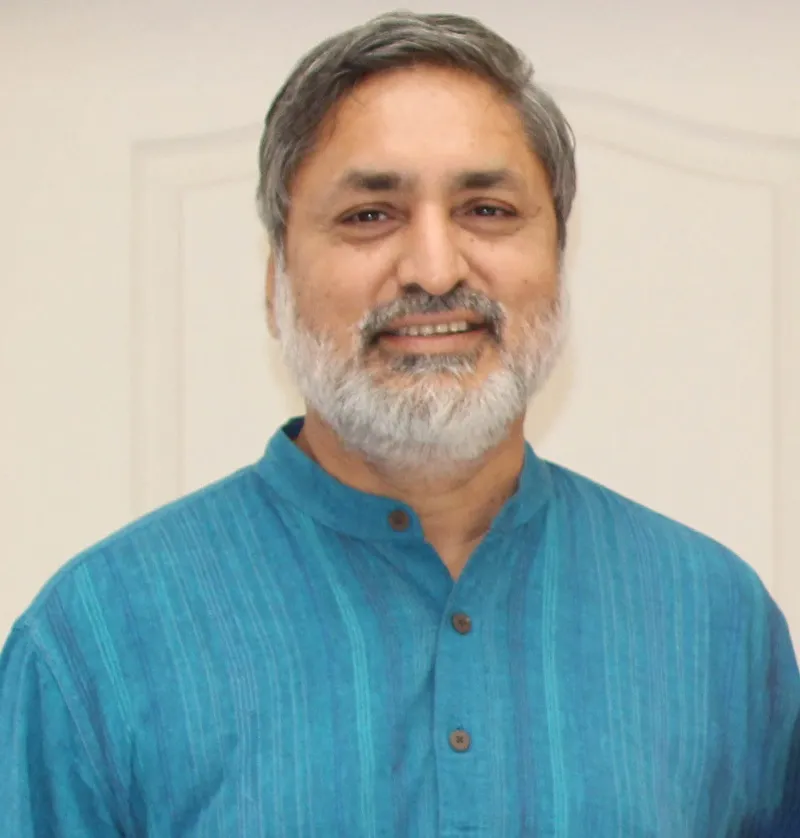
Mahesh Babu
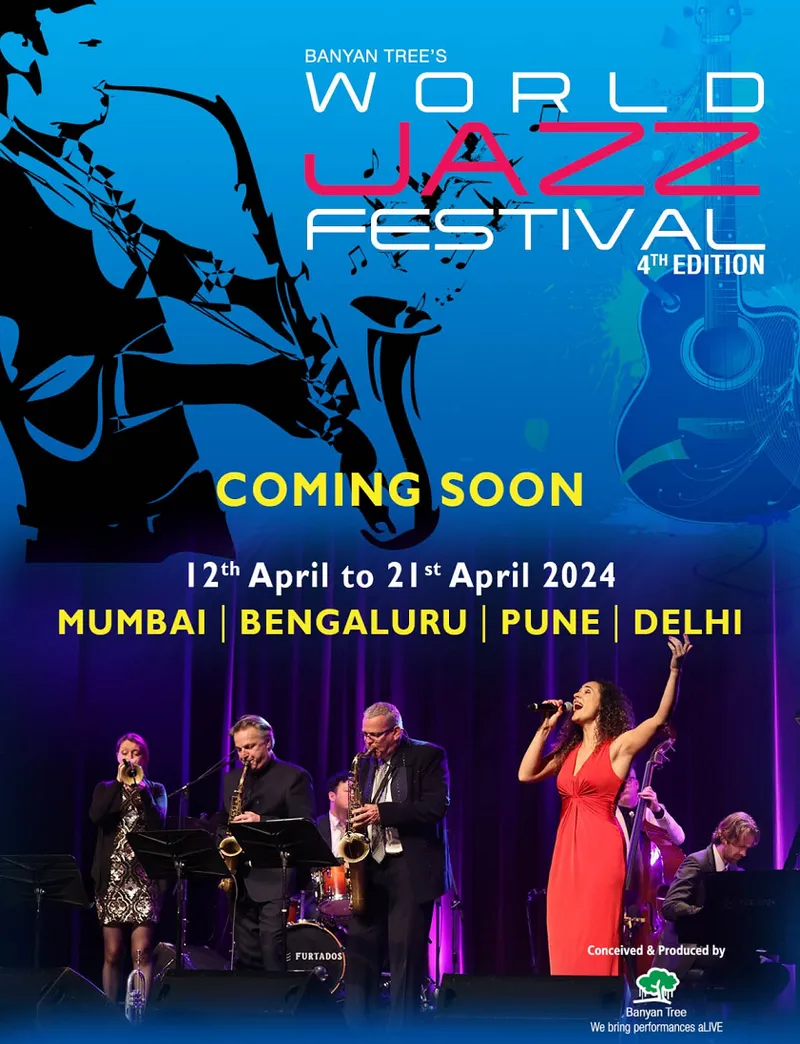
(All photographs provided by Banyan Tree Events.)
(The copy was updated to correct a factual error.)










